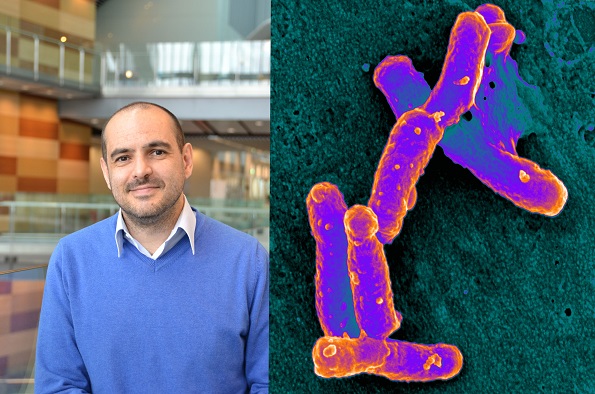
Intra-Macrophage Replication of Mycobacterium Tuberculosis in Time and Space
- Jay Hinton
- Suitable for: Staff and students with an interest in Behaviour, Evolution, Ecology and Microbiology
- Admission: Free
Add this event to my calendar
Click on "Create a calendar file" and your browser will download a .ics file for this event.
Microsoft Outlook: Download the file, double-click it to open it in Outlook, then click on "Save & Close" to save it to your calendar. If that doesn't work go into Outlook, click on the File tab, then on Open & Export, then Open Calendar. Select your .ics file then click on "Save & Close".
Google Calendar: download the file, then go into your calendar. On the left where it says "Other calendars" click on the arrow icon and then click on Import calendar. Click on Browse and select the .ics file, then click on Import.
Apple Calendar: The file may open automatically with an option to save it to your calendar. If not, download the file, then you can either drag it to Calendar or import the file by going to File >Import > Import and choosing the .ics file.
To cause disease and disseminate to other hosts, M. tuberculosis needs to replicate within human cells. Work in the last decades have shed light into some aspects of tuberculosis pathogenesis, however, we still do not understand how M. tuberculosis manages to survive within eukaryotic cells and why some cells are able to eradicate this lethal pathogen. This surprising gap in knowledge is in part due to the lack of appropriate imaging technologies that have precluded comprehensive understanding of the fundamental biology that underpins M. tuberculosis-host cell interactions. Our research focuses on the fundamental molecular and cellular mechanisms that regulate the interactions between M. tuberculosis and host cells. We aim to dissect the host cell factors that contribute to M. tuberculosis control as well as the M. tuberculosis factors that this pathogen uses to highjack host cells. To this end, we use a variety of cutting-edge imaging approaches and model systems. In this seminar, I will present some recent data from our group regarding the environments where M. tuberculosis survives in human cells and the barriers that these environments represent for therapy.
